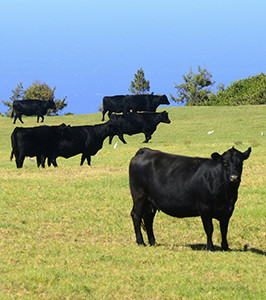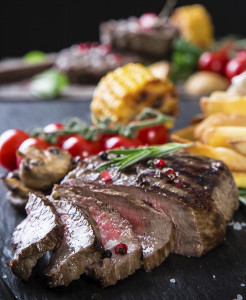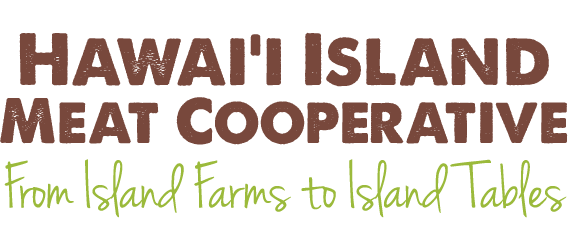About Hawai‘i Island Meat

Hawai‘i Island Meat was created in direct response to ranchers’ need for greater access to quality, humane, convenient slaughter services. Like elsewhere in the U.S., many meat producers on Hawai‘i Island face significant barriers to market entry. These include high competition from imported, industrial meat products, the high cost of feed, water and land, and a reduction in the number of accessible, inspected slaughterhouses. As a result, Hawai‘i has become increasingly reliant on imported protein sources: 17% of the island’s beef and more than 95% of its pork, lamb and goat products are now imported—making us extremely vulnerable to disruptions in food supplies from outside the state.
In 2011, Big Island Resource Conservation & Development Council late President, Kawika Marquez, initiated the “Hawai‘i Island Mobile Slaughter Unit Task Force.” Kawika firmly believed a Mobile Slaughter Unit (MSU) could help island ranchers improve their economic viability and promote a local meat industry based on small-mid scale family farms. He formed strategic partnerships with two nonprofits, the Hawai‘i Island Small Business Development Center and The Kohala Center. Working together with island ranchers, the Task Force spent 3.5 years developing a feasibility study to assess the viability of an MSU on Hawai‘i Island. Study results showed clear demand from producers, with 90% of those surveyed interested in using the unit and 70% committed to investing their own money in the project.
In late 2014, a producer steering committee was formed to establish Hawai‘i Island Meat (HIMC), a producer owned and operated cooperative that is developing the first MSU in Hawai’i State. HIMC’s MSU will travel around the island, bringing USDA-inspected slaughter services directly to ranches and regional docking sites. This method has been successfully used elsewhere in the U.S., reducing the stress of animals transported to faraway slaughterhouses and improving the quality and availability of locally grown meats. The MSU will be equipped to handle cattle, sheep, goats, and pigs. Support has been provided by the Hawai‘i Department of Agriculture, The Kohala Center, island ranchers and a diverse team of project consultants from in and out of state.
 Expected benefits of the project:
Expected benefits of the project:
- Revitalization of small, family ranching on the Big Island
- Provide healthy protein for our island, emphasizing ‘eat local, buy local’
- Potential solution to feral and invasive species (pig, sheep, goat, deer)
- Become a Center of Excellence in the Pacific region for mobile meat harvesting, ideally suited for many islands
- Lastly, the Big Island is becoming a mecca for foodies eager to visit a place where farm-to-fork programs and farmers’ markets support world-class chefs who turn locally-grown ingredients into award-winning cuisine; HIM will provide access to gourmet proteins in high demand by island chefs and visitors.
About Mobile Slaughter Units
More than two dozen MSUs currently operate around the country. About half are designed to process red meat, with the rest processing poultry and smaller animals such as rabbits. Many are managed by producer cooperatives formed specifically to operate slaughter services by and for area ranchers. Read more …

